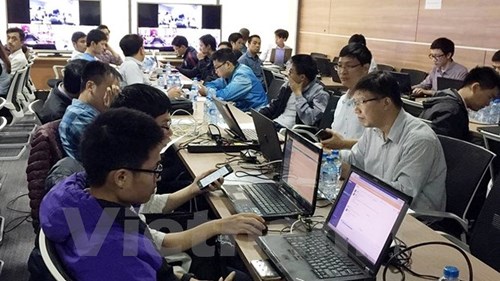The drill drew the participation of 15 countries, namely Australia, Brunei, Cambodia, China, India, Indonesia, Japan, the Republic of Korea, Laos, Malaysia, Myanmar, the Philippines, Singapore, Thailand, and Vietnam.
    |
 |
|
Photo for illustration: Vietnam+ |
The teams coordinated in dealing with circumstances given by the organizers. They also sought warning and preventative measures for relevant agencies, as well as solutions to prevent the spreading of the virus, thus minimizing losses and restoring attacked computers. A database report system for the field was also built.
Amidst the development of cryptocurrency activities in many countries, including Vietnam, the risk of information safety violations, harmful software spreading, and the abuse of loopholes for coin mining are all on the rise.
This type of attack is among the top 10 leading risks for information safety in 2018, as listed by many domestic and international organizations.
After “ransomeware” – a poisonous software - was controlled, hackers tended to use coin mining viruses, which will silently be installed into the server of the host computer after the user unknowingly clicks on a harmful website.
VNCERT Director Nguyen Trong Duong said that the exploitation of computer loopholes for coin mining is one of the more dangerous problems, as it also means hackers can attack the information safety system.
Over the past few years, many agencies in Vietnam have suffered from such problems, however the number of agencies experienced in settling the issue still remains few, he said.
The drill was a chance for cyber security experts to rehearse and ready themselves to roll out response measures to such problems. The event was also expected to improve the capacity of Vietnamese experts in dealing with transnational cyber attacks, added Duong.
Source: VNA